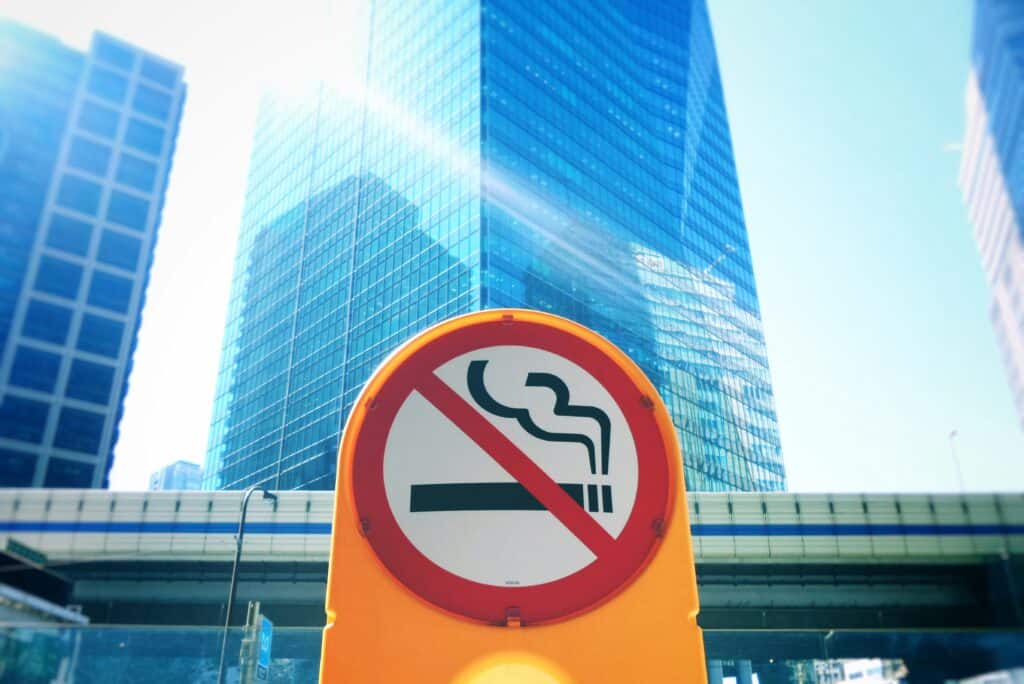
photo from unsplash
In a continued effort to promote public health, New York State remains at the forefront of tobacco control measures, taking decisive steps to restrict cigarette use while prioritizing smoking cessation programs.
This report highlights that in addition to federal cigarette taxes, the Empire State enacted its own tax hike increasing cigarette tax by $1 per pack of 20 cigarettes. From $4.35, the excise tax now stands at $5.35, bringing the average cost of a pack of cigarettes to about $10.
These and other developments highlight a shift in focus towards decreasing the accessibility of tobacco products and encouraging alternative, less harmful options.
Restricting tobacco and cigarette products
New York State authorities are intensifying efforts to restrict access to traditional tobacco and cigarette products. Recent legislative initiatives aim to curb smoking rates by imposing stricter regulations on the sale and marketing of these products. The proposed measures include a statewide ban on the sale of menthol cigarettes and other flavored tobacco products, as has been done in Massachusetts and California.
Spearheaded by Governor Kathy Hochhul and backed by the NAACP, the ban seeks to decrease the next generation of smokers, with supporters asserting that younger people often start with menthol cigarettes. However, other lawmakers are not in agreement with the ban, instead proposing a $75 million funding boost for the state’s tobacco control program and a stricter enforcement of the ban on flavored e-cigarettes.
In 2022, Westchester County’s Board of Legislators successfully passed a bill banning the retail sale and distribution of flavored tobacco products within the county. But the bill was later vetoed by County Executive George Latimer, who compromised by committing $3 million to be spent on a new Westchester Tobacco-Free Program, according to previous reporting.
Embracing NRTs and smokeless products
Concurrently, the state is making strides to increase accessibility to nicotine replacement therapies (NRTs) and smokeless alternatives. Health officials recognize the potential harm reduction benefits of transitioning smokers to less harmful options. NRTs, including patches, pouches, gums, and lozenges like Nicorette, are becoming more readily available at convenience stores and pharmacies, providing smokers with effective tools to quit.
Moreover, popular nicotine pouch brands such as VELO have capitalized on the accessibility of online retail channels. These pouches are available online here and can conveniently be shipped to any state in the US. Advocates argue that this alternative presents a less toxic way for smokers to satisfy their nicotine cravings without the harmful effects associated with combustible cigarettes. The state is closely regulating the marketing and sale of these products to ensure that they are marketed to youth while making them accessible to adult smokers looking to quit.
Smoking cessation programs and funding
Recognizing the need for comprehensive support, New York is investing in smoking cessation programs to help individuals overcome their addiction to tobacco. The state has allocated substantial funding to enhance existing programs, a list of which can be found on this website.
Additionally, community-based organizations like this one are offering full scholarships for a Tobacco Treatment Specialist Training Program to make effective cessation more accessible to vulnerable communities. Helplines, mobile apps, and online resources are also being integrated into these programs to reach a wider audience and offer personalized assistance to those wanting to quit.
While challenges persist, the state’s commitment to reducing smoking rates and supporting individuals in their journey towards a smoke-free life marks a positive step forward. New York State’s comprehensive approach serves as a model for other regions grappling with the public health implications of tobacco use, offering a blueprint for a healthier and tobacco-free future.





